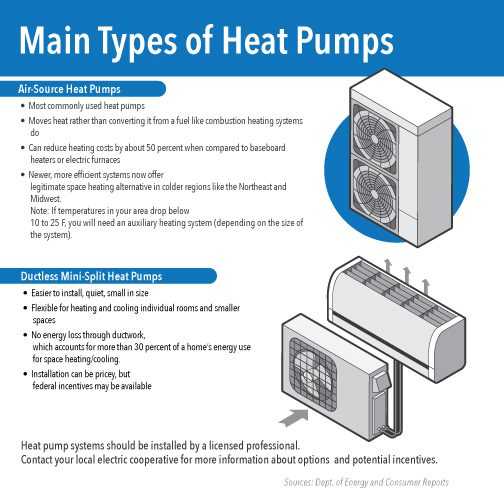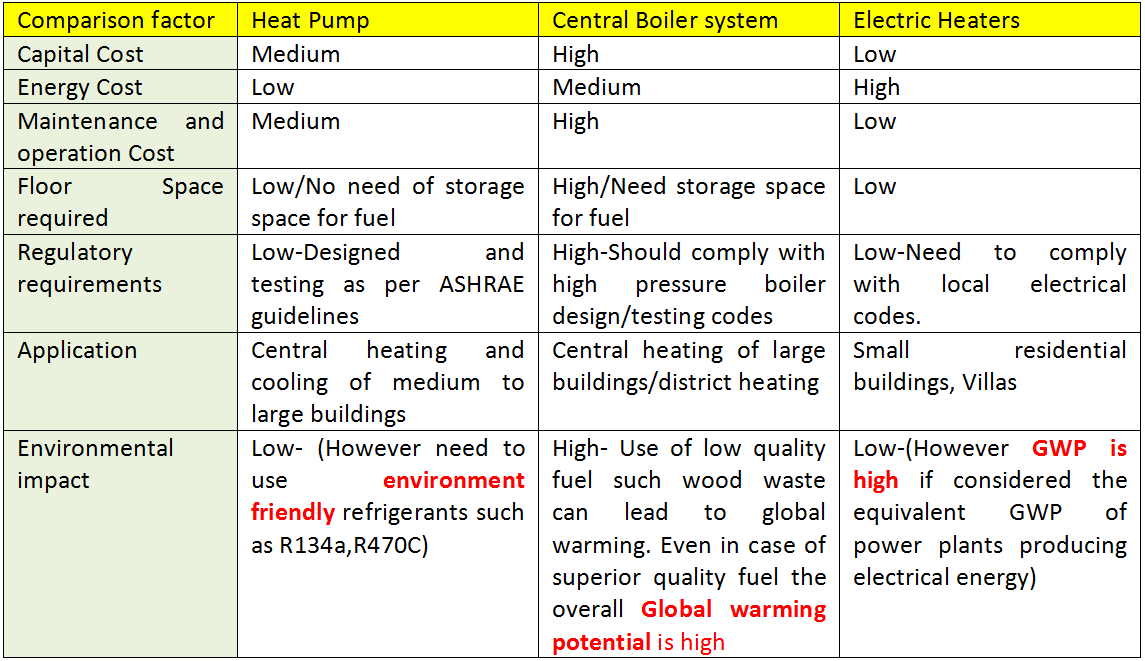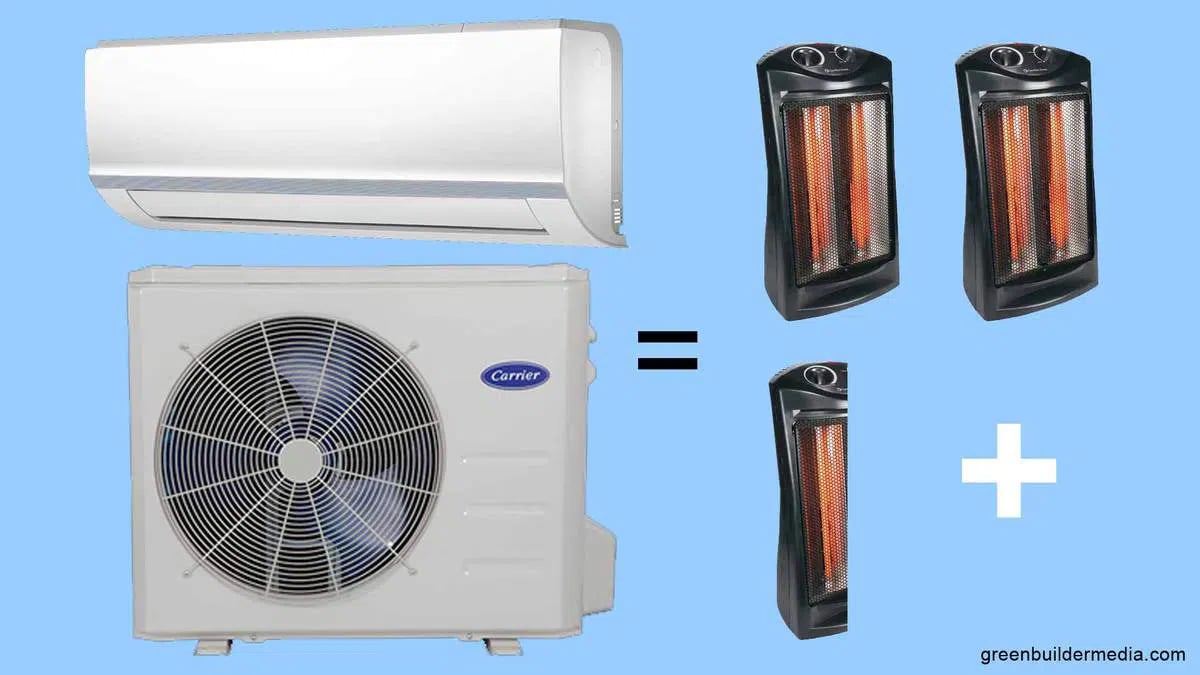Choosing between a space heater and a heat pump can be tricky. Both options offer unique benefits for home heating.
Understanding which one suits your needs best requires a bit of insight. Space heaters are portable and perfect for small areas. They offer quick warmth and are easy to use. On the other hand, heat pumps provide a more permanent solution.
They can heat and cool your home, making them versatile. Comparing these two options helps you decide based on efficiency, cost, and your specific needs. In this blog, we will explore the features, benefits, and limitations of space heaters and heat pumps to help you make an informed decision.

Credit: www.jeffpud.org
How Space Heaters Work
Space heaters warm up small areas quickly by converting electrical energy into heat. Heat pumps, on the other hand, move heat from outside to inside, making them more energy-efficient for larger spaces.
Space heaters provide a quick way to heat specific areas. They are portable and perfect for small spaces. Understanding how space heaters work can help you choose the right type for your needs.Types Of Space Heaters
Space heaters come in various types, each with unique features.- Convection Heaters: These use air circulation to warm a room. They heat the air, which then rises and spreads warmth.
- Radiant Heaters: They emit infrared radiation, directly warming objects and people. Ideal for spot heating.
- Fan-Forced Heaters: These have a fan to blow heated air. They heat a room quickly but can be noisy.
- Oil-Filled Heaters: These use oil to retain heat. They are energy-efficient and provide steady warmth.
Energy Source
Space heaters use different energy sources. The choice depends on availability and convenience.| Energy Source | Description |
|---|---|
| Electric | Most common and easy to use. Just plug in and turn on. |
| Gas | Uses propane or natural gas. Heats quickly but needs ventilation. |
| Oil | Uses kerosene or diesel. Suitable for larger spaces and outdoor use. |

Credit: leadinggreen.com
How Heat Pumps Work
Heat pumps are efficient devices for heating and cooling. They transfer heat from one place to another. They work on the principle of heat transfer. They move heat instead of generating it. This makes them energy-efficient.
Types Of Heat Pumps
There are three main types of heat pumps. Air-source heat pumps are the most common. They transfer heat between your house and the outside air. Ground-source heat pumps, also known as geothermal heat pumps, use the ground as a source of heat. Lastly, water-source heat pumps transfer heat between your home and a water source, like a pond.
Energy Source
Heat pumps rely on electricity to function. The electrical energy powers the compressor and fans. For every unit of electricity used, heat pumps can provide several units of heating or cooling. This makes them more efficient than traditional heating systems. They also reduce your carbon footprint.
Efficiency Factors
When choosing between a space heater and a heat pump, efficiency is key. Understanding how each option consumes energy and distributes heat can help make an informed decision. These factors impact both cost-effectiveness and comfort levels at home.
Energy Consumption
Space heaters typically consume a lot of electricity. They convert almost all the electricity they use into heat. This makes them efficient in small spaces. However, for larger areas, they may not be cost-effective. Running multiple space heaters can lead to high energy bills.
Heat pumps, on the other hand, use electricity differently. They transfer heat rather than generate it. This process uses less energy. It can be more efficient, especially in moderate climates. Heat pumps can also work in reverse, providing cooling in the summer.
Heat Distribution
Space heaters are best for spot heating. They warm up the immediate area around them. This can leave cold spots in larger rooms. Moving the heater from room to room can be inconvenient.
Heat pumps offer a more uniform heat distribution. They connect to a central system that delivers heat through ducts. This ensures an even temperature throughout the home. It provides consistent comfort in all rooms.
Cost Comparison
When choosing between a space heater and a heat pump, cost is a crucial factor. Understanding the financial implications can help you make an informed decision. This section breaks down the costs into two main parts: initial investment and operating costs.
Initial Investment
Space heaters generally have a lower upfront cost. You can buy a basic model for as little as $20. More advanced models with additional features may cost up to $100.
Heat pumps, on the other hand, involve a higher initial investment. Prices for a standard heat pump can range from $2,500 to $7,500, including installation. This makes heat pumps a more expensive option at the start.
Operating Costs
Operating costs vary based on usage and local electricity rates. Space heaters are cheaper to buy but can be expensive to run. They consume more electricity per hour compared to heat pumps.
Heat pumps are more energy-efficient. They use less electricity to produce the same amount of heat. Over time, this can lead to significant savings on your energy bill. The higher initial cost of a heat pump can be offset by lower operating costs.
Consider how often you will use the heating system. Frequent use may make a heat pump more cost-effective in the long run.
Environmental Impact
Understanding the environmental impact of heating devices is crucial. Two popular options are space heaters and heat pumps. Both have their pros and cons in terms of carbon footprint and sustainability. Let’s dive deeper into these aspects to make an informed decision.
Carbon Footprint
The carbon footprint measures the total greenhouse gases emitted by an appliance. Space heaters primarily use electricity or gas. This leads to higher carbon emissions. Gas-powered space heaters, in particular, emit significant CO2 directly.
In contrast, heat pumps are more energy-efficient. They transfer heat rather than generate it. This process results in lower CO2 emissions. Heat pumps use electricity but consume less energy overall. This makes them a greener choice.
Sustainability
Sustainability refers to the long-term environmental impact. Space heaters are usually cheaper and more accessible. However, their higher energy consumption makes them less sustainable. They also have a shorter lifespan, leading to more waste.
Heat pumps, on the other hand, are durable and efficient. They have a longer lifespan and lower energy use. This reduces waste and decreases the strain on energy resources.
In terms of sustainability, heat pumps are the better choice. They offer long-term environmental benefits despite the higher initial cost.

Credit: www.greenbuildermedia.com
Suitability For Different Climates
Choosing between a space heater and a heat pump depends heavily on your climate. Different heating systems work better in different weather conditions. Understanding their suitability can help you make the best choice for your home.
Cold Climates
In areas with harsh winters, a space heater can be very effective. These units provide immediate heat and can be moved from room to room. They are perfect for quick warmth in specific areas.
Heat pumps are less effective in extremely cold climates. They lose efficiency as temperatures drop. In very cold weather, they might need a backup heating source. This can increase costs and reduce efficiency.
Moderate Climates
For regions with mild winters, a heat pump is ideal. These systems provide both heating and cooling. They work efficiently in temperatures above freezing. This makes them a versatile choice for year-round comfort.
A space heater can also be useful in moderate climates. They are best for smaller areas or occasional use. They are less energy-efficient than heat pumps for whole-house heating.
| Climate Type | Space Heater | Heat Pump |
|---|---|---|
| Cold Climates | Effective for quick, localized heating | Less efficient, may need backup |
| Moderate Climates | Good for small areas or occasional use | Efficient for year-round use |
Consider your climate when choosing between a space heater and a heat pump. The right choice will keep you comfortable and save on energy costs.
Frequently Asked Questions
What Is A Space Heater?
A space heater is a device that heats a single room. It uses electricity or gas.
How Does A Heat Pump Work?
A heat pump transfers heat from outside to inside. It can also cool by reversing the process.
Which Is More Energy-efficient, A Space Heater Or Heat Pump?
Heat pumps are generally more energy-efficient. They use less electricity to produce heat.
Can A Space Heater Heat An Entire House?
No, space heaters are designed for single rooms. They are not suitable for whole-house heating.
What Are The Safety Concerns With Space Heaters?
Space heaters can cause fires if not used properly. Keep them away from flammable materials.
Conclusion
Choosing between a space heater and a heat pump depends on needs. Space heaters work well for small rooms and quick warmth. Heat pumps are efficient for larger areas and long-term use. Both have pros and cons. Consider your space, budget, and climate.
Think about energy efficiency and costs. Make the best choice for your home’s comfort.
